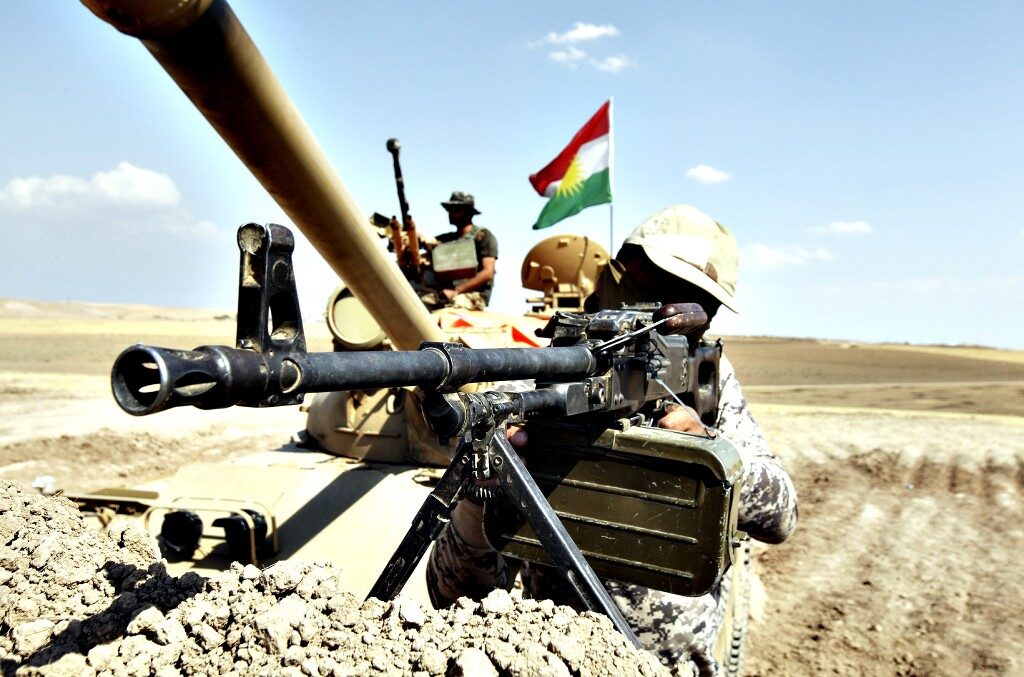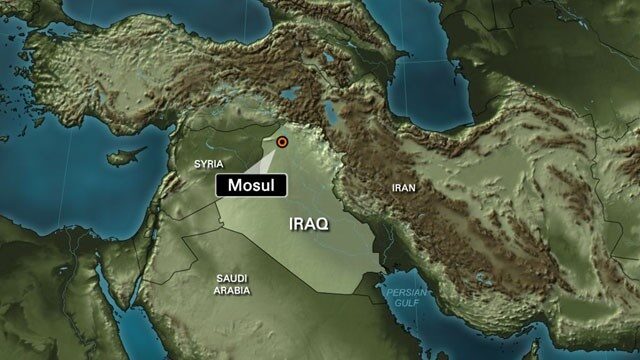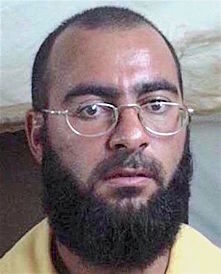TREASON PRECEDES THE FALL OF THE ISIS

When the leaders of an armed or revolutionary group are systematically killed it is generally due to the presence of spies within that group that relay information to its enemies. When this happens, it is usually due to the fact that the military fortunes of the group in question are turning for the worse and causing the defection of its followers. The wavering followers stop supporting the losers and try to gain the consensus of the opposition through treason. After all, espionage has always been fueled by treason. This is exactly what is happening to the Caliph’s army, which is now on the defensive in both Syria and Iraq. The closure of the Turkish escape route leaves them without a way out and faced with the inescapable militarily defeated. When the utopia of a Caliphate crumbles on Islamic turf, its militiamen embrace more prosaic ways in order to survive. The idea that martyrdom is the only way out is not always met with enthusiasm. Currently, there are a number of signs that anticipate the Islamic State’s military undoing.
The signs
The first sign is visible in the propaganda apparatus of the ISIS. An apparatus that has always been the diamond point of the Caliphate. It divulged admonitions and threats, the exaltation of its victories, helped in the recruitment, proselytism and in the diffusion of a vision of a pure and invincible Islam. The propagandist support to the exaltation of the Caliphate has been drastically reduced of late. This is not solely due to the physical elimination of its supervisor Mohammed Adnani (and of his second-in-charge, Wail Adil Hassan Salman al Fayad – the person responsible for the diffusion of the ISIS’ videos and its “minister of information”) but also to the general conditions in which the Caliphate is now forced to operate. The substance of the ISIS’ messages has changed; its messages are now mainly centered on the theological aspects of the struggle. When reality does not fuel hope, there is a tendency to find refuge in the utopia that should be. There is a new focus on the duties of the combatant rather than on those of the good Muslim under the aegis of the Caliph. Even the diffusion of Al Baghdadi’s last message – a rare event – in which he invites the Islamic soldiers to fight for martyrdom, is in fact proof of a crumbling Islamic State. Another sign of their undoing is the news of two attempts by the population of Mosul to topple the ISIS, both drowned in blood. This had never occurred in the past, when the ISIS was all-powerful and when it had full control over its territories. People find the courage to contrast the brutality of the Islamic State because they perceive its weakness. These attempts were not led by underground opposers coming out in the open, but rather by individuals who were until recently partially sympathetic or complacent with the ISIS, who now need to show their dissent in order to gain merits in view of the arrival of the Iraqi army in Mosul. The uprisings were not popular revolts but rather attempts dictated by opportunism. In a chiefly Sunni city like Mosul, which is openly hostile to the Shiites in Baghdad, where the defunct Saddam Hussein is still popular, the main interest is that of looking supportive of the government in Baghdad. This is due to the risk, which is actually quite high, of going from the persecutions of the Caliph’s men to those of the Iraqi army (or rather those of the Shiite militias that fight alongside the army, which have already shown their brutality upon conquering other nearby Sunni cities.) There are also other signs coming from within the Islamic extremist circle. The ISIS had risen in juxtaposition and competition with Al Qaida. It is a circumstance that caused a division both on the Syrian and Iraqi battlefields, where a militarily powerful organization such as Jabhat al Nusra (which recently changed its name in “Jabhat Fatah Al Sham” in order to distinguish itself from Al Zawahiri’s group) clashed with Al Baghdadi’s militias. The main differences arose on theological grounds (to achieve the Caliphate not by fighting, as the ISIS did, but through the religious conviction of Muslims), on the main objective of the armed fight (Al Qaida’s internationalism was aimed at non-believers while the ISIS’ unchained a sectarian fight against Shiites) and on the way power is to be administered (Al Qaida has always tried to avoid the killing of Muslims, mass executions and has never speculated on the media hype around such circumstances). Now that the ISIS is collapsing, Al Qaida has announced the creation of an Islamic emirate in north-western Syria. It’s as if the two have traded sides. Not exactly a sign of solidarity; rather one of religious profiteering. Another symptom of a collapsing regime are the cases of desertion among the ranks of the ISIS, which were, of course, drowned in blood. Desertion is in fact the supreme contradiction for an Islamic combatant who endorses Caliph Al Baghdadi’s project while knowing full well that it is a divine plan where the only two options are victory or martyrdom. The brutality of the ISIS in the administration of its territories make it unlikely that defeated combatants will be spared or rehabilitated. This is an option only for those that have been involved marginally in such brutality and that can therefore hide from the avenging hand of the Iraqi security forces. That the situation in Mosul and in the other territories controlled by the ISIS is deteriorating rapidly is confirmed indirectly by some exceptions made in the previously strict observance of the sharia: women are not forced to wear a hijab anymore (for fear that they may conceal weapons or explosives under the shroud), the Islamic fighters now tend to shave their beard (which was previously prohibited, since the beard was an element of recognition and faith in the Caliphate). The fact that the fighter’s families are moving out of Mosul to find refuge in Raqqa is an ulterior sign of a collapsing regime. Also, the attempt to burn oil – as they are doing in Mosul – to produce smoke and hide from enemy aircraft – means that there is less fuel to escape and that the bombardments are indeed crippling the ISIS.
Another sign of the crumbling reign is the imposition, in the territories controlled by the ISIS, of a laughable Caliphate currency and the contextual requisition of the local currency. It means that the Islamic fighters are preparing to escape and need money to do it. At the same time, it is a way to impoverish the local population which cannot escape because they cannot buy anyone’s collaboration to do so.

The systematic elimination of the ISIS management Just like with the most-wanted Iraqi deck of cards, which was progressively diminished as members of the Baath management were killed and captured, the same is happening with the individuals that have administered power alongside the Caliph. The same circumstance that certified the fall of the Baathist regime is now true of the Islamic State. Saddam Hussein’s military chiefs were systematically eliminated, thus creating a void in the chain of command. A climate of insecurity among the management of the Baath party was created and Saddam Hussein, like Al Baghdadi today, was progressively isolated. The result will be the same: Al Baghdadi’s management will be left with two options: to escape (and be killed) or to die in so-called martyrdom. The elimination of the management of the ISIS has been greatly accelerated of late. Besides the above-mentioned Adnani and Al Fayad, other, important, heads of the ISIS have recently met their demise: Abdel Rahmne al Qadouli (“minister of finance”), Abu Al Hija (Commander of the Aleppo front), Omar Al Shishani (“minister of defense”). In the past weeks, at least 13 important ‘cards’ of the Caliph’s deck have been killed in the area in or near Mosul.
There are still a number of ISIS cards to be captured or killed, but the most important, the so-called ace of spades (Saddam Hussein back then) is Ibrahim Awad Ibrahim Ali Al Badri al Samarrai, also called “Abu Bakr Al Baghdadi”. Once he is killed or captured, the entire Islamic State will dissolve like a bad dream.

Al Baghdadi in 2004
What will happen after the defeat of the ISIS The military defeat of the ISIS – it is important to remember – will not put an end to Islamic terrorism, it will only cause its relocation to another area of the world, because the social context that generates terrorism is left unchanged, especially in Muslim countries and in the areas of Africa where poverty is endemic. But the utopia of a religious war that conquers territory and subjugates the enemy is, alas, over. This was the main attractiveness of the Caliphate compared to other Islamic terrorist struggles. Al Baghdadi’s “merit” is especially this: to have moved beyond the stumbling block, to have challenged the impossible and provided a dream for his “people”. Now the Islamic combatants are faced with the harsh reality of a war that they are losing. They hoped/believed that Allah would have guaranteed a victory on the battlefield but it did not happen. They are now confronted with the fact that, since the divine support did not arrive, perhaps the cause they had embraced was not the right one. And the roads left for them to tread are not many. The ISIS combatant is the victim of a system that was willingly brutal, not only to ensure power but also to burn the bridges behind its adepts’ backs. Now they are left with few alternatives – save martyrdom – and they need to continue the battle elsewhere. After their defeat in the Daqib (which, in the religious interpretation of the Hadith, was the final battle against the miscreants), the Islamic extremists will seek another Daqib elsewhere. Fate dealt its fatal, ironic, twist: The long awaited Daqib was won by the Turkman Sunni militias on the past 16th of October in a battle where the steadfast defense by Al Baghdadi’s militias that the sacredness of the battlefield would have deserved was nowhere to be found.

